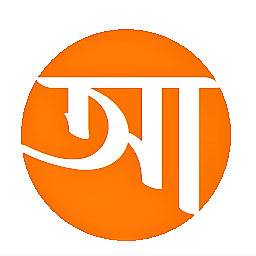Shaheed Moyez Uddin against a dictator
- এডিট ডেস্ক

- Dec 15, 2021
- 2 min read
Updated: May 10, 2023
Against the barbaric killing of Mohammad Moyez Uddin, protests spread across the country as fast as sparks. Through his sacrifice, the anti-dictatorship movement grew stronger.

Against the backdrop of the anti-authoritarian movement against the military dictator Ershad to restore democracy, on September 26, 1984, Mr. Moyez Uddin went to his village Kaliganj on a nationwide morning-evening hartal. He led the procession to succeed in his rural areas with an incentive to organize the ordinary people. At 9 a.m., the assassins in support of the military dictatorship jumped on the procession. The assassins stabbed him in the neck, chest, abdomen, and other body parts and killed him ruthlessly.
The media of Bangladesh was under the strict control of the dictatorship. At that time TV channels, newspapers, and the internet were not used as a source of news for the people like now. The information was broadcast on the BBC, Voice of America, and other foreign media outlets before the news broke inside the country. There was a lot of reaction in the country and abroad when the heinous news unfolded.
The protest against Moizuddin's brutal killing, spread like a spark across the country, and the anti-dictatorship movement became stronger with the sacrifice of Martyr Moizuddin. The blood of his bosom increased the base of the anti-dictatorship movement and laid a solid foundation. The bloody path that followed was the path that ended the dictatorship. Martyr Moejuddin's sacrifice in restoring democratic governance has been recorded as a glorious history and will remain so. He was killed while carrying out a political program. Moyez Uddin against a dictator will ever rememberable.
He was the convener of the historic Agartala conspiracy case management committee and one of the organizers of the liberation war in 1971. In 2001, The government of Bangladesh awarded Moizuddin by Independence Day Award (posthumously)for making an outstanding contribution to the freedom war.
The great leader was born on March 18, 1930, in Barahara village of Kaliganj upazila of Gazipur. Among four children, Moyejuddin was the eldest. Md Churat Ali and Shahrabanu were his parents. His wife's name is Bilkis Moyejuddin. They have five daughters and one son. The second child is Meher Afroz Chumki, a Bangladeshi woman politician, Member of Parliament, and former Minister of State for Women and Children Affairs. She has been chair of the Commonwealth's Women Ministers for three years since 2013.

He completed his primary education at Noapara Primary School. 1947 he passed the entrance examination in the first class from Raja Rajendra Narayan High School. Then after passing Intermediate in the first class from Dhaka College in 1950, he was admitted to the undergraduate course at Dhaka University. He obtained Bachelor's (Honors) in Political Science in 1953 and an MA degree in 1955. Later, he passed LLB from here in 1970 and started his career in politics.
Words: 485
Photo and information source: Wikipedia, https://opinion.bdnews24.com/bangla/archives/54200





Comments